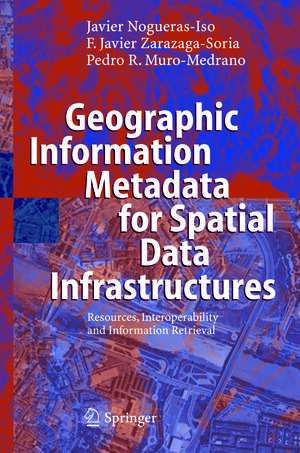
From the reviews:
„The book focuses on technologies and methodologies that can provide better utilization of metadata within spatial data infrastructures. … The concepts exposed, in addition to the examples and a thorough corpus of additional bibliographic references, will bring readers to a better understanding of the design and management of future geospatial data infrastructures. This is an excellent book, which I recommend reading.“ (Alessandro Berni, ACM Computing Reviews, Vol. 49 (5), 2008)
Geographic Information Metadata for Spatial Data Infrastructures
Resources, Interoperability and Information Retrieval
von Javier Nogueras-Iso, Francisco Javier Zarazaga-Soria und Pedro R. Muro-MedranoMetadata play a fundamental role in both DLs and SDIs. Commonly defined as „structured data about data“ or „data which describe attributes of a resource“ or, more simply, „information about data“, it is an essential requirement for locating and evaluating available data. Therefore, this book focuses on the study of different metadata aspects, which contribute to a more efficient use of DLs and SDIs. The three main issues addressed are: the management of nested collections of resources, the interoperability between metadata schemas, and the integration of information retrieval techniques to the discovery services of geographic data catalogs (contributing in this way to avoid metadata content heterogeneity).






